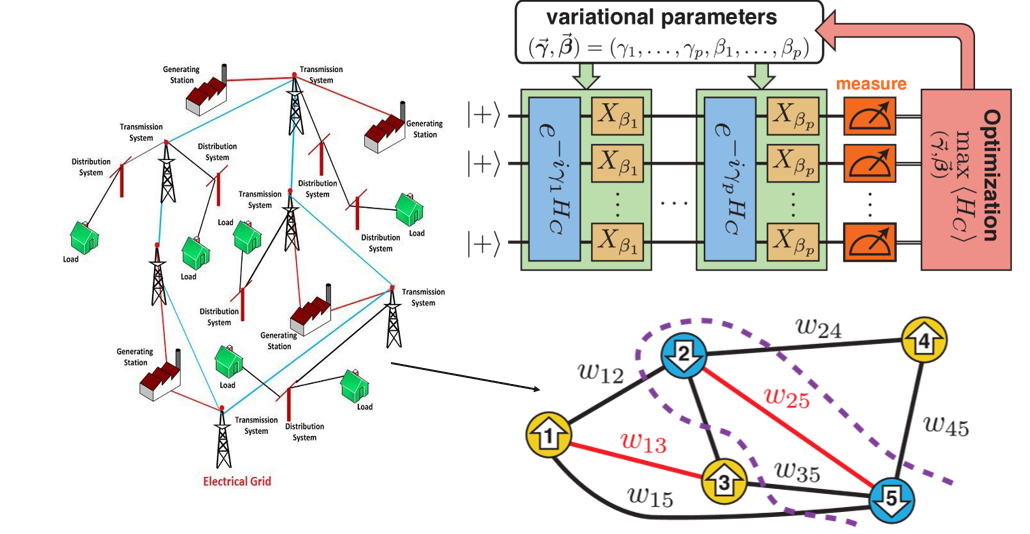Projects
Projects in QuAADS center on specific domain problems that are core to the mission of PNNL and the Department of Energy. These projects serve as important proofs-of-concept for the benefits of integrating a quantum computing approach into a range of topics, from chemistry to atmospheric science to power grid management.
Current projects focus on quantum chemistry, nonlinear transport algorithms for quantum computing, and quantum computing for power system applications. These specific application cases have problems such as an excessive number of parameters, nonlinear coupling of degrees of freedom corresponding to various scales, and biases in existing “classical” formulations that can be addressed using quantum computing.
The work in QuAADS will help researchers at PNNL demonstrate the quantum advantage across a range of applications and create a vibrant community of scientists involved in quantum information sciences research.
Power Systems
Quantum Computing for Power System Applications
PI – Yousu Chen

We will develop advanced quantum computing techniques that offer advantages over classical computers for addressing complex power system problems, such as power system optimization, contingency analysis, and cascading failure analysis. We will focus on leveraging the latest advancements in quantum approximate optimization algorithm and quantum annealing techniques to solve power system optimization problems. We will build a hybrid quantum framework for researchers to utilize quantum solvers to solve power grid systems. We will also leverage the support of hybrid classical/quantum simulation frameworks and develop demonstration cases to understand the quantum advantages.
Nonlinear Transport
Nonlinear Transport Algorithms for Quantum Computing
Simulating nonlinear transport processes is challenging but essential for accurately representing complex systems. To enable quantum computing to affect a wide range of application areas, we will build mathematical formulations for generalized nonlinear transport problems to cover chemical and physical reactions in the context of reactive transport. We plan to develop several candidate approaches to rigorously formulate and test nonlinear transport models applicable in quantum computing. We will build hybrid schemes based on two types of hybrid approaches—physics-based and computation-based—to help maintain flexibility with future quantum computing hardware and implementing rigorous coupling between these approaches.
Quantum Chemistry
Quantum Chemistry
PI – Niri Govind
Advancing quantum algorithms specifically tailored for quantum chemistry is necessary to revolutionize the precision and efficiency with which ground- and excited-state properties of molecules and materials can be predicted. We will develop and implement cutting-edge quantum chemistry algorithms for quantum computing, designed to overcome current hardware limitations and advance the field into the next generation of applications. We will use: (1) new algorithms that improve upon the number of gates required to compute energies for molecules, (2) new formalisms that achieve well-behaved scaling in algorithm complexity and the number of gates, (3) hybrid quantum computing–high-performance computing workflows, (4) codesign of the chemistry algorithms with architectural software to minimize overhead costs, and (5) applications to relevant chemical systems.